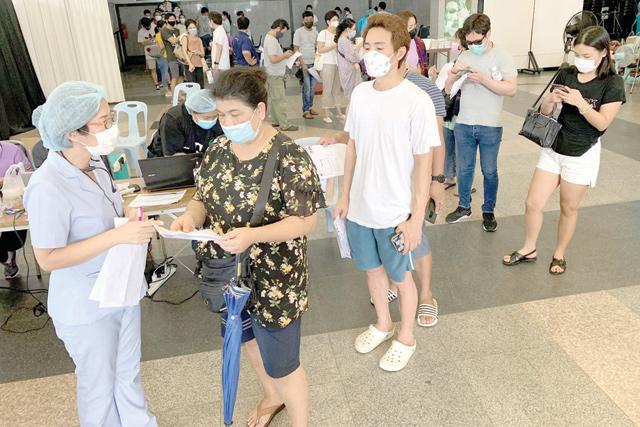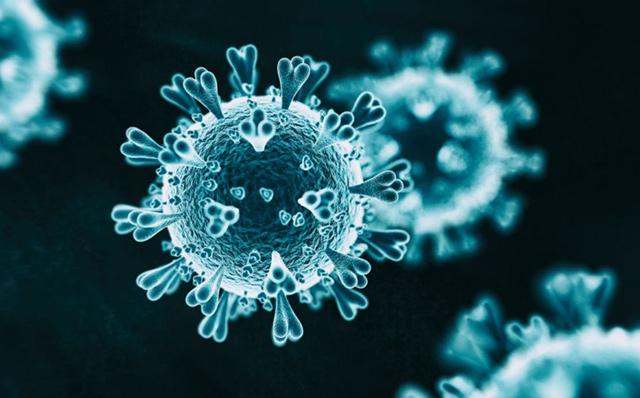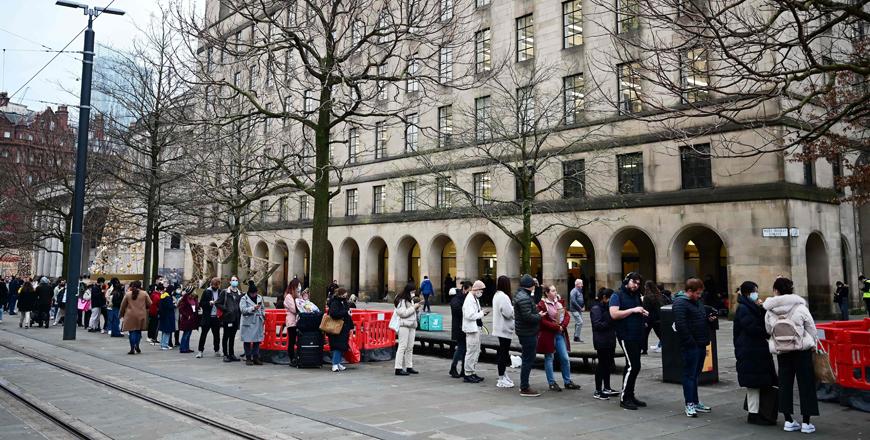You are here
Neighbourhood in south China under lockdown
By AFP - May 29,2021 - Last updated at May 29,2021

People queue to register for the second dose of China's Sinovac COVID-19 coronavirus vaccine in the hall of the Holy Redeemer Church in Bangkok on Saturday (AFP photo)
BEIJING/PARIS — A neighbourhood in the southern Chinese city of Guangzhou has been locked down as officials rush to quell an uptick in cases in the area.
The industrial hub north of Hong Kong home to nearly 15 million people has reported 20 new cases of the coronavirus in the past week.
A notice by the Guangzhou municipal health bureau issued Saturday identified five streets in Liwan district in the city centre as "high-risk areas" and ordered residents to stay indoors until door-to-door testing is completed.
Markets, schools and entertainment venues in the area were shut.
The city government has rushed to conduct mass testing and about 700,000 people had been tested by Wednesday.
China has largely controlled the spread of the virus and has tightened quarantine rules after a surge in cases in neighbouring countries.
The mini-outbreak in Guangzhou is believed to be linked to a 75-year-old woman who tested positive for the virus variant first identified in India, local health officials said.
The total number of confirmed infections in China to date stands at 91,061, with 4,636 deaths, according to the latest figures from the National Health Commission.
Meanwhile a study by France’s Pasteur Institute showed that the Pfizer vaccine is slightly less effective but appears to still protect against the more transmissible Indian strain of the virus that causes COVID-19.
“Despite slightly diminished efficacy, the Pfizer vaccine probably protects” against the Indian variant, according to laboratory test results, said Olivier Schwartz, the institute’s director and co-author of the study that was published on the BioRxiv website ahead of peer review.
The study sampled 28 healthcare workers in the city of Orleans. Sixteen of them had received two doses of the Pfizer vaccine, while 12 had received one dose of the AstraZeneca vaccine.
People who had received two doses of Pfizer saw a three-fold reduction in their antibodies against the Indian variant, B.1.617, according to the study, but were still protected.
“The situation was different with the AstraZeneca vaccine, which induced particularly low levels of antibodies neutralising” the Indian variant, the study said.
Patients who had had COVID-19 within the past year and people vaccinated with two doses of Pfizer retained enough antibodies to be protected against the Indian variant, but three to six times less antibodies than against the UK variant, Schwartz said.
The study shows that “this variant.. has acquired partial resistance to antibodies”, Schwartz said.
Since first emerging in late 2019 in China, the SARS-CoV-2 virus that causes COVID-19 has developed several variants, usually named for the places where it first appeared including the so-called South Africa and UK strains.
The variant first detected in India appears to be much more transmissible than earlier variations.
Related Articles
PARIS — Several coronavirus variants with the potential to be more transmissible have caused global concern over whether existing vaccines w
WASHINGTON — Pfizer said on Tuesday that clinical trials confirmed its COVID pill — a new type of treatment that should withstand the mutati
PARIS — A month after it was first detected in southern Africa, Omicron is now known to be far more contagious than previous variants of Co
















